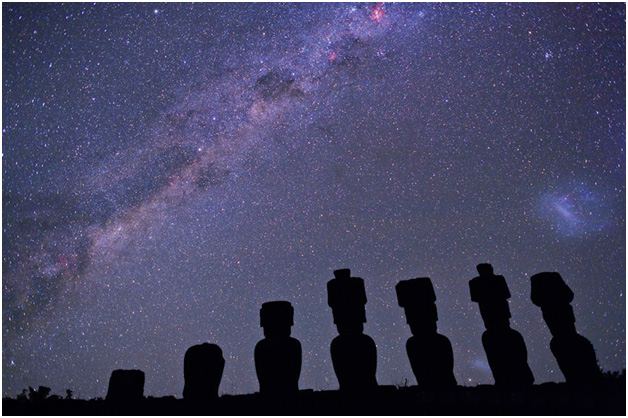Learn about light pollution and how you can help with these GAM programs.

Image credit: Wally Pacholka / AstroPics.com / TWAN
One of the main "take-away" messages from Global Astronomy Month (GAM) is why we should preserve our dark night skies. Even if you live in cities with too many bright lights, you can make a difference. With half of the world's population now living in cities, many people have never experienced the wonderment of a pristinely dark sky and maybe never will. "Light pollution" is obscuring people's long-standing natural heritage to view stars. Poorly-aimed and unshielded outdoor lights are the cause of most of the light pollution. They waste more than $2 billion (17 billion kilowatt-hours) of energy in the United States each year, for example. Under an unpolluted sky we ought to see more than a couple thousand stars, yet we see less than a hundred from many cities.
Several dark skies events and activities are being held worldwide on behalf of GAM to promote public awareness on how to save energy and save our night sky. The events range from things you can do in a few minutes, like the audio podcasts, things you can do in a day for adults and for kids, things you can do over a week's time, a campaign measuring light pollution, a photo contest and poetry on the importance of maintaining dark skies, a conference on light pollution and a year-round program to conserve places to observe a dark night sky.
All the GAM Dark Skies Awareness programs are listed below. Pick the one that's right for you and click "Read more..." for all the details. And for the curious person who wants to know lots more on light pollution issues and how they can make a difference, you can join the International Dark Sky Association's conference at Northeast Astronomy Forum (US).
Get Dark Skies Awareness Resources on the GAM Resources page







